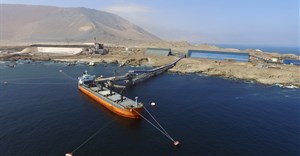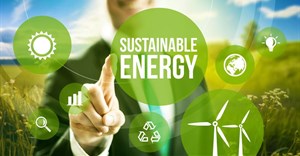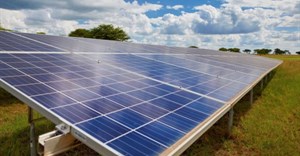
Subscribe & Follow
Jobs
- Customer Service (UK Company) Work from Home Work From Home
- Finance Manager Cape Town
- Assistant Store Manager Cape Town
- Retail Store Manager Pretoria
- Customer Service Team Manager - UK Market Work From Home
- Marketing Coordinator Cape Town
Backing a green future

The M&G Greening the Future awards are now in their fifth year and seek to recognise the achievements of companies and organisations that work unflaggingly to ensure a cleaner and healthier planet.
There were six different environmental categories that were recognised on the night; other category winners included the likes of Woolworths, Wesbank, Coca Cola and Omnia Fertilizer.
The judges complimented Backsberg for the discerning manner in which it has approached energy usage and conservation. Based on some of the changes implemented on the farm and in the vineyards, the judges cited the estate as a great example of a company identifying environmental risks and opportunities.
Backsberg became Carbon Neutral in 2006 through measuring its carbon emissions and taking measures to offset their impact. One of the offset projects was a major tree-planting program in the nearby town Klapmuts. Since then, the vineyard has continued in its quest to reduce its impact on the environment.
The national electricity supplier, Eskom, sponsored the award for energy efficiency and carbon management. This certainly contributes to raising awareness about the need to protect the environment for future generations.
Reducing the carbon footprint
Results from the first and second carbon audits showed that electricity usage and fossil fuel consumption are the major contributors towards Backsberg's carbon footprint. Projects that are underway to reduce the carbon footprint even further include a methane digestor and a woodlot research project carried out in conjunction with the University of Stellenbosch. The methane digestor will be used to decompose poultry litter and waste grape skins in order to generate methane gas. The purpose of the woodlot programme is to make use of the calorific value of optimal tree type. The intention of both these projects is to reduce dependence on electricity and fossil fuels in the future
Other fundamental decisions taken include replacing all tractors and farm vehicles with the smallest and most fuel-efficient possible on the market. There have also been significant changes in thinking regarding vineyard layout and yields. Vineyard layouts have been changed to decrease the amount of running metres or kilometres a tractor has to drive per hectare. All of these measures are in keeping with the belief that protecting the environment and producing top quality wines are parallel goals.

















